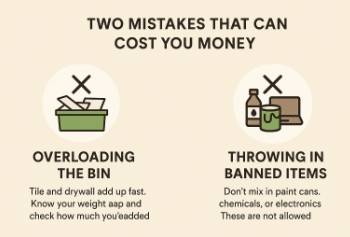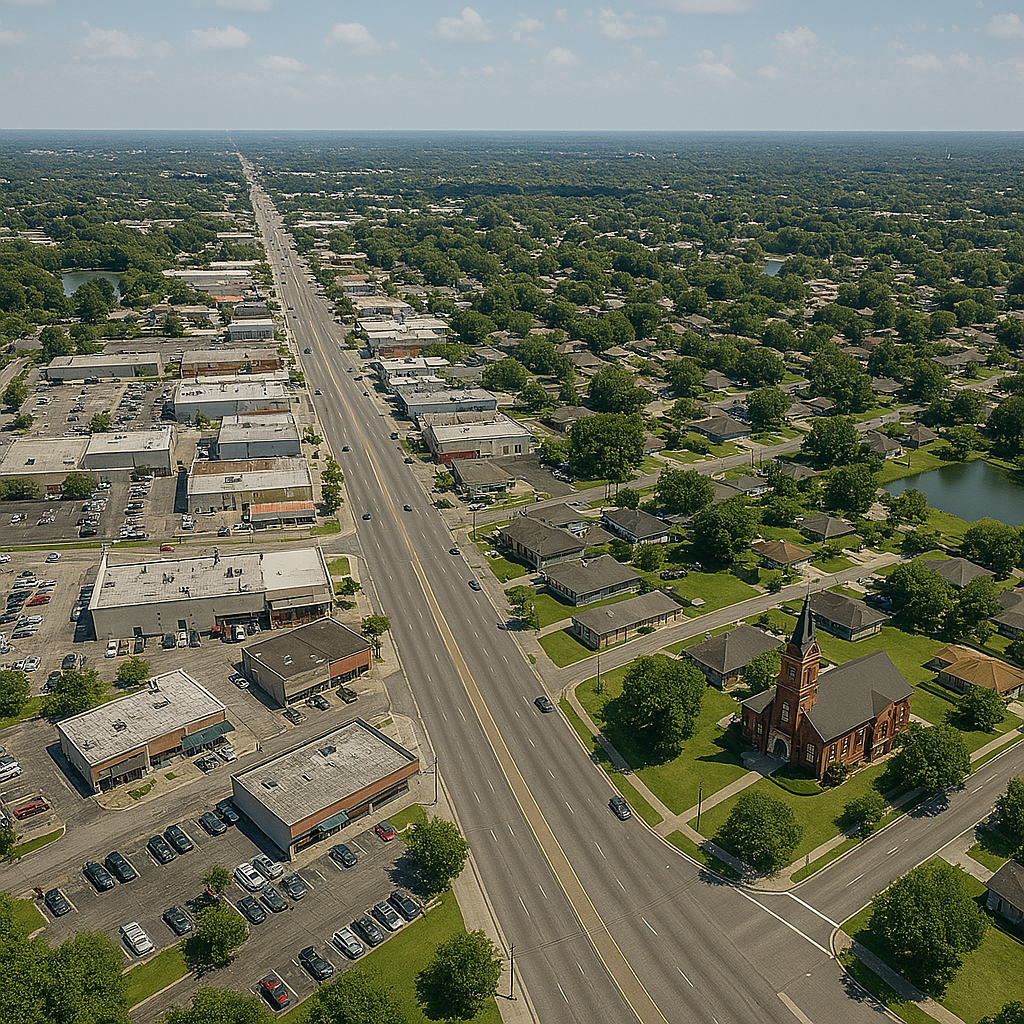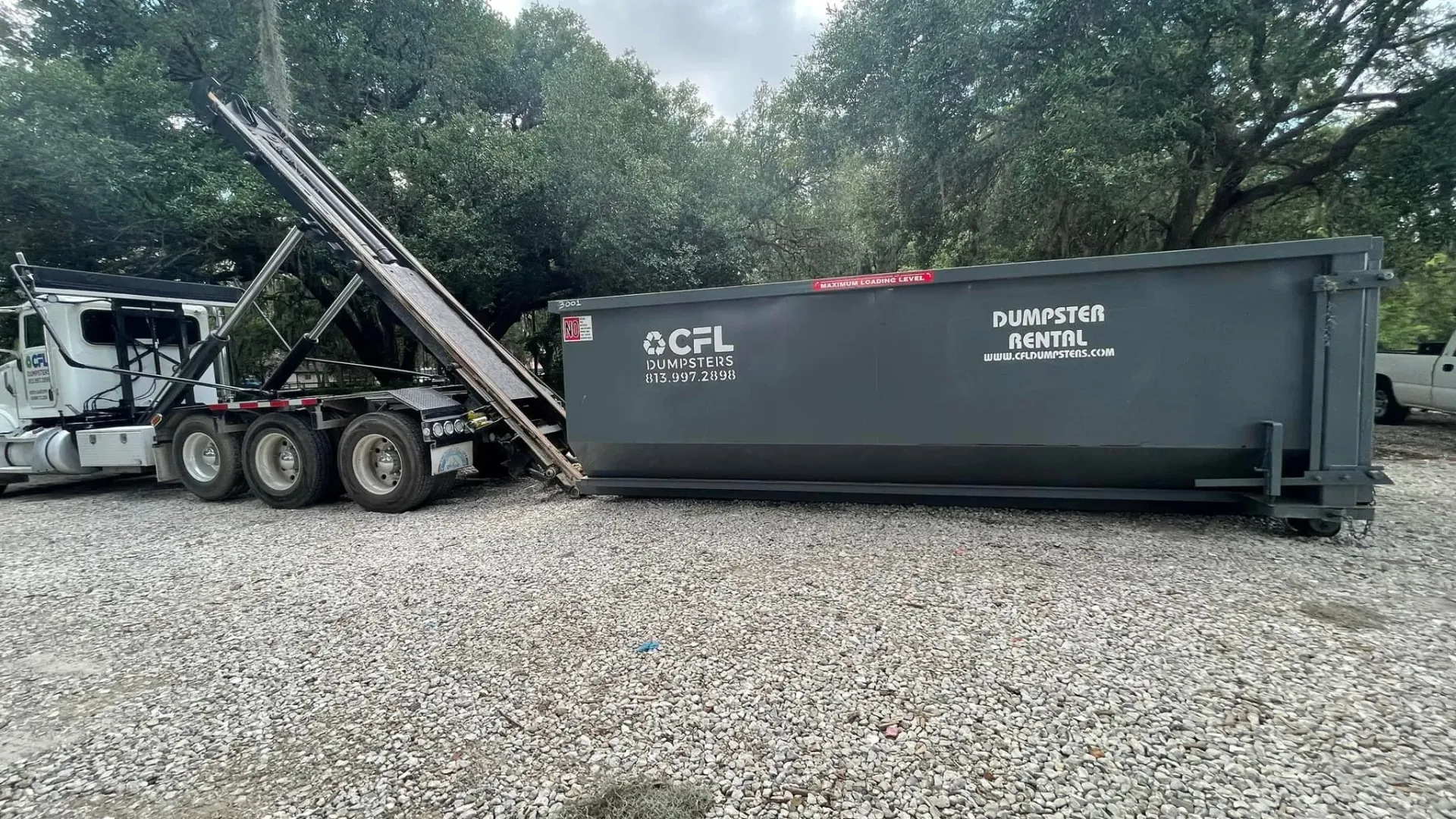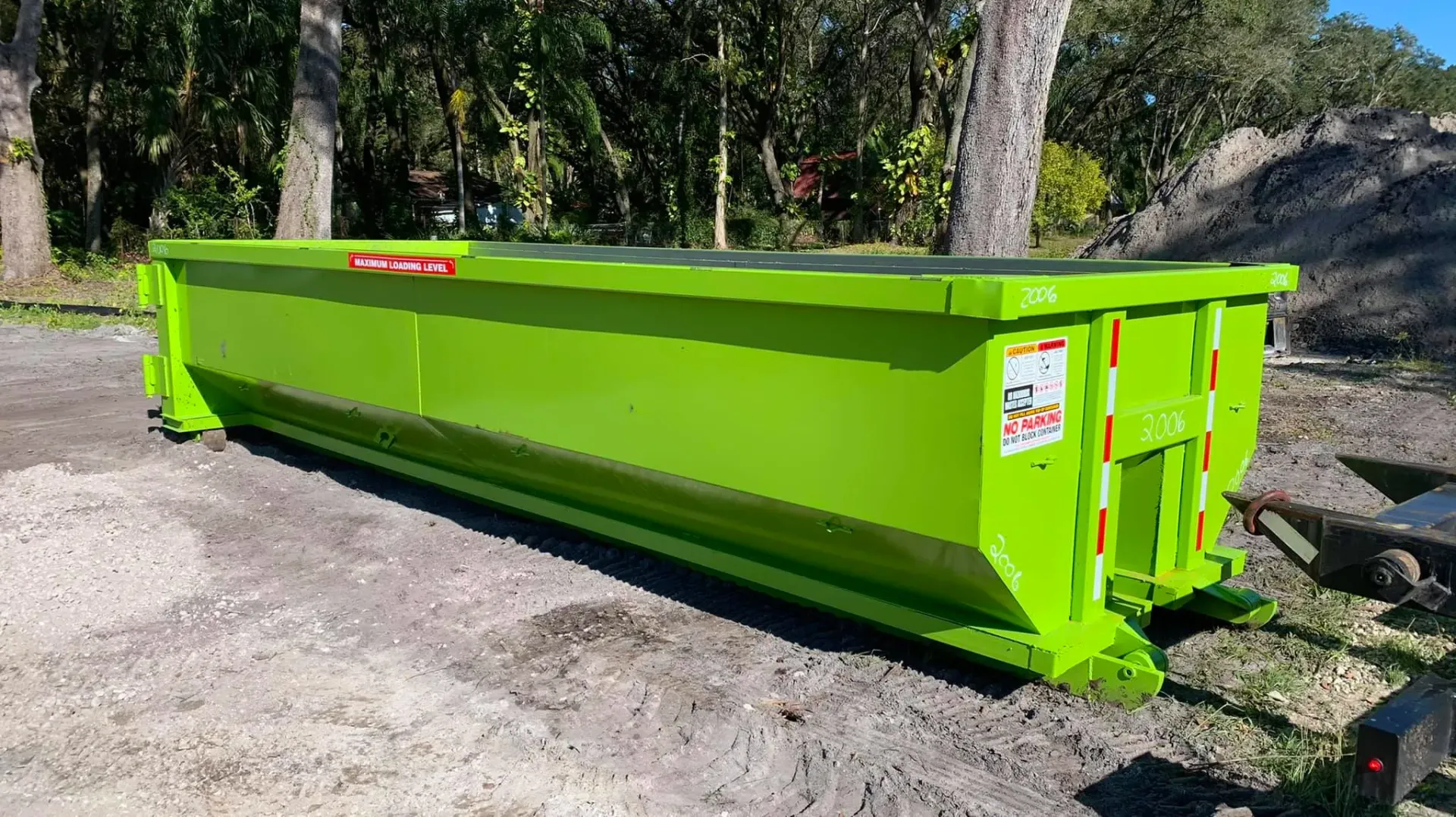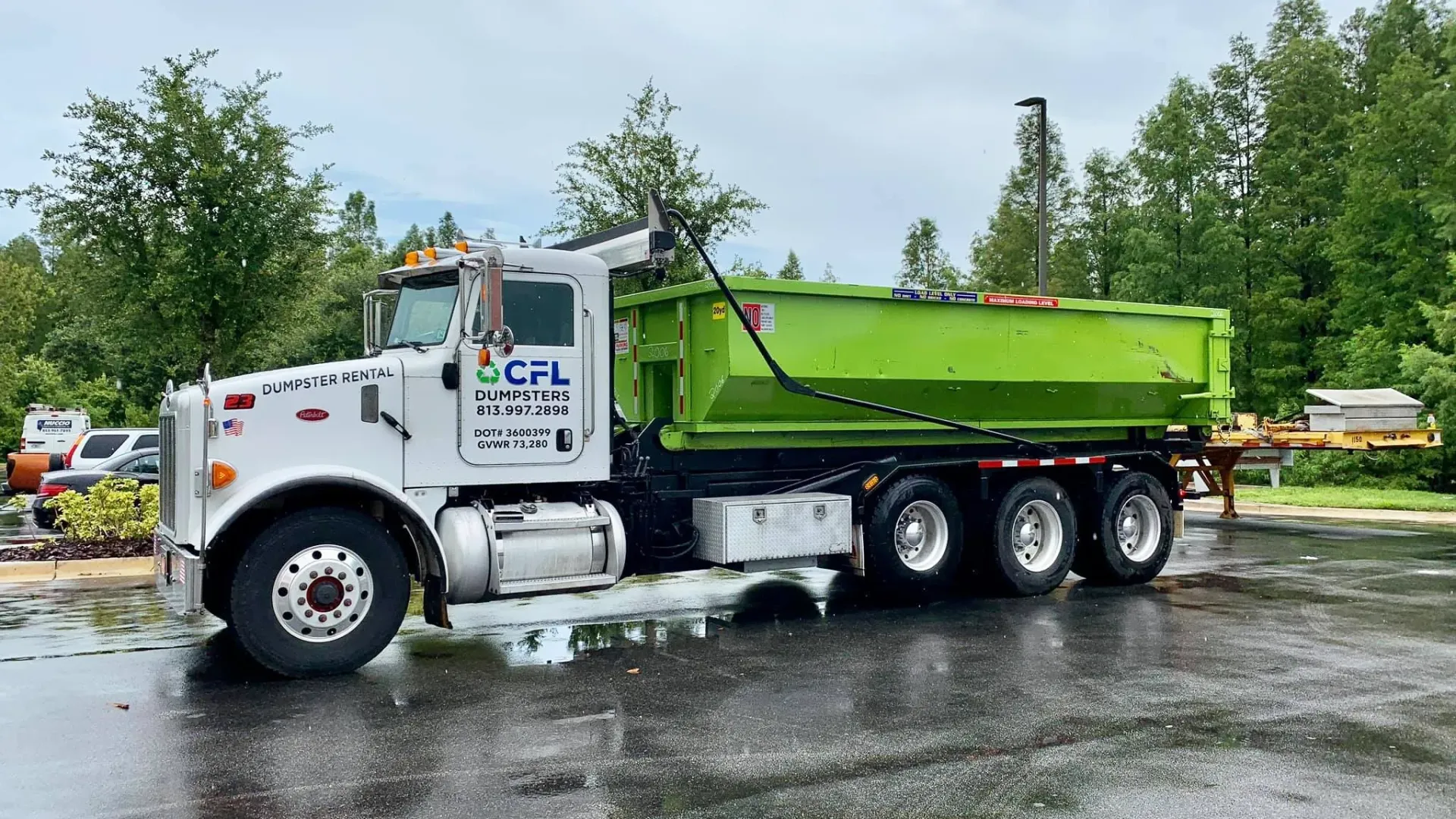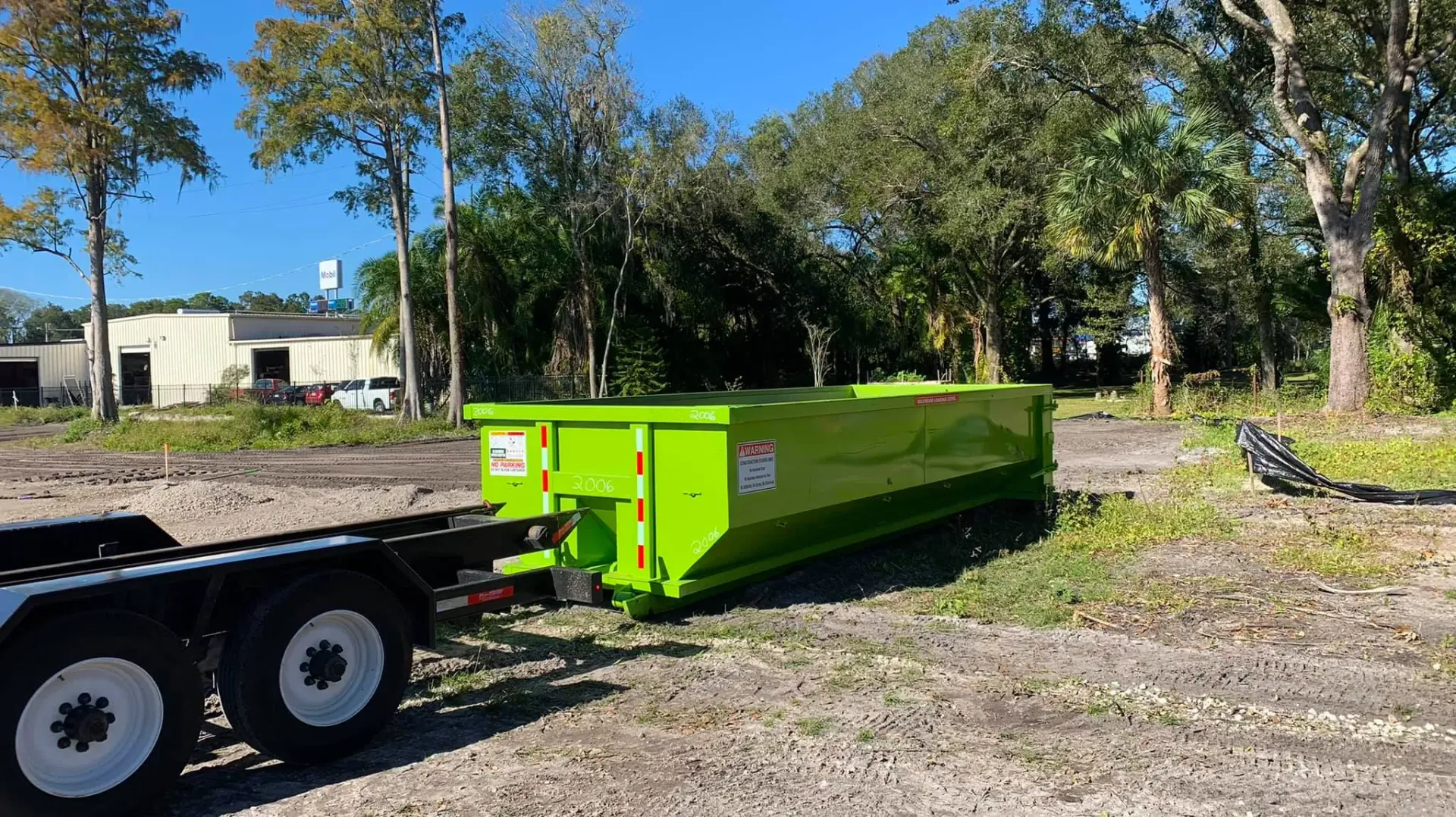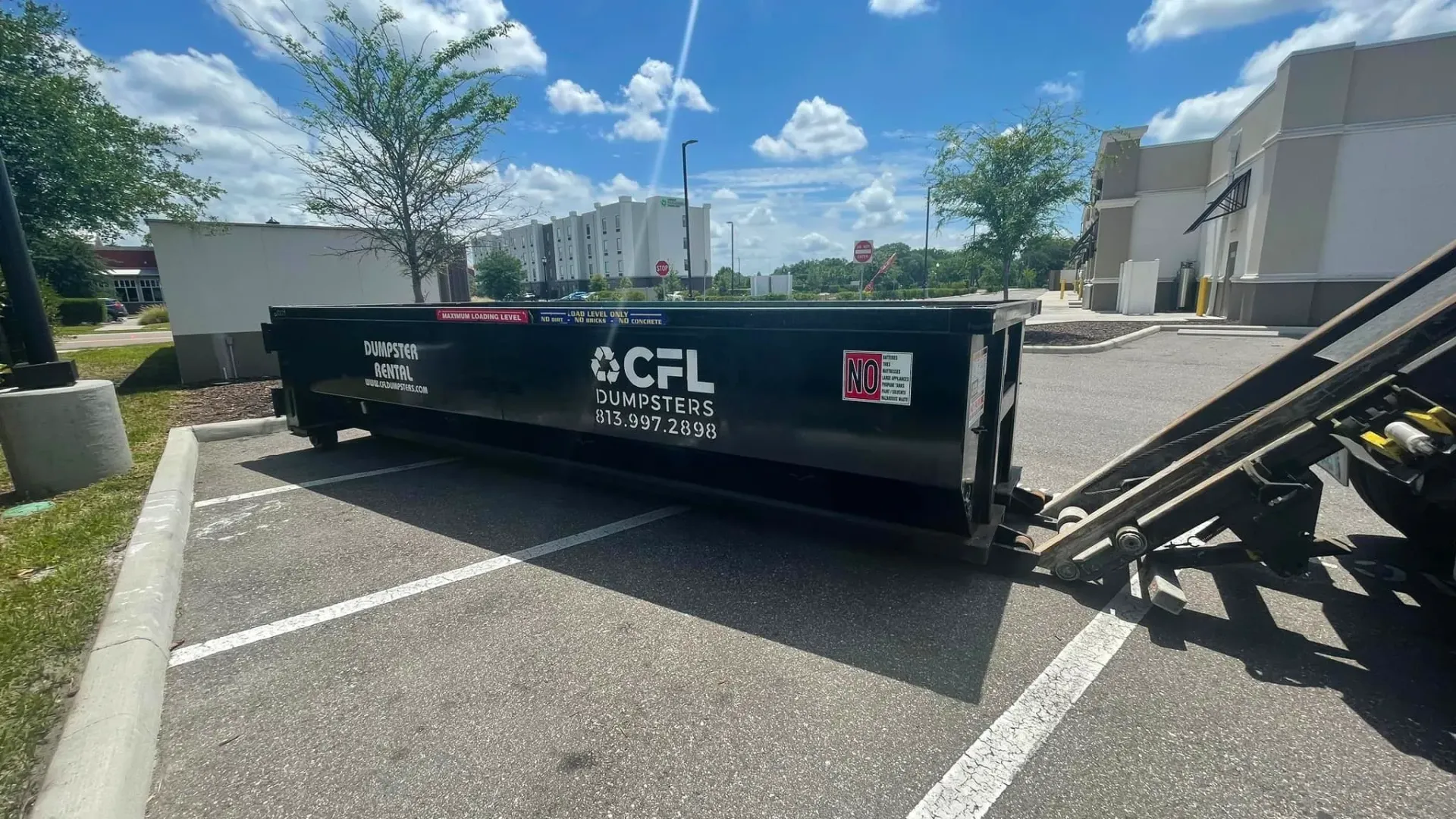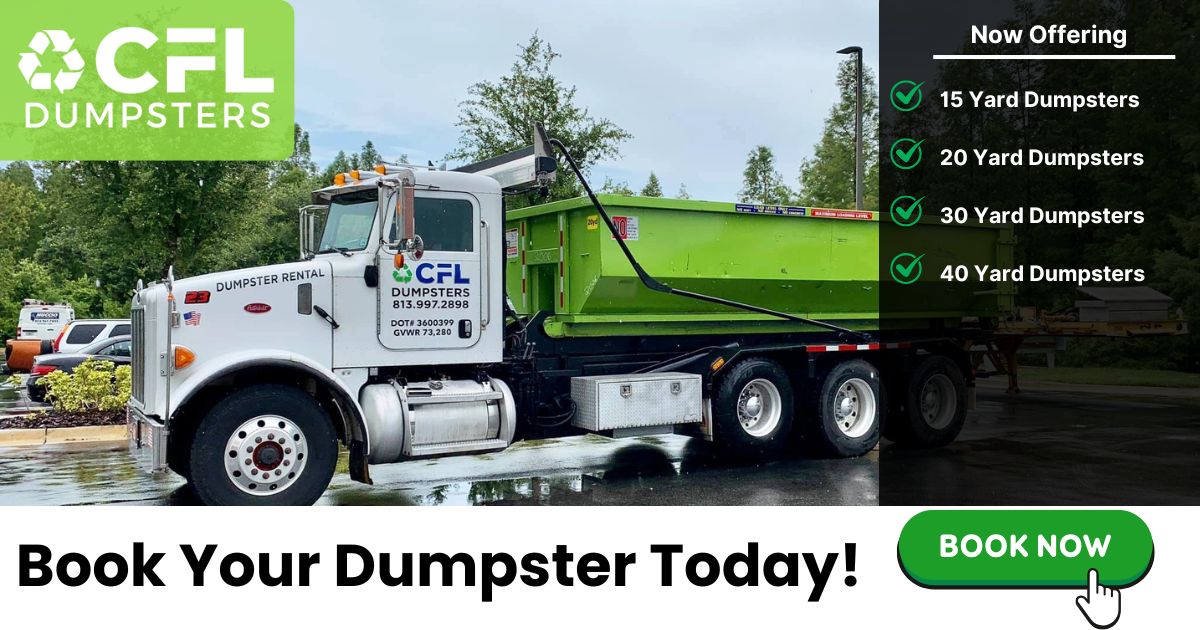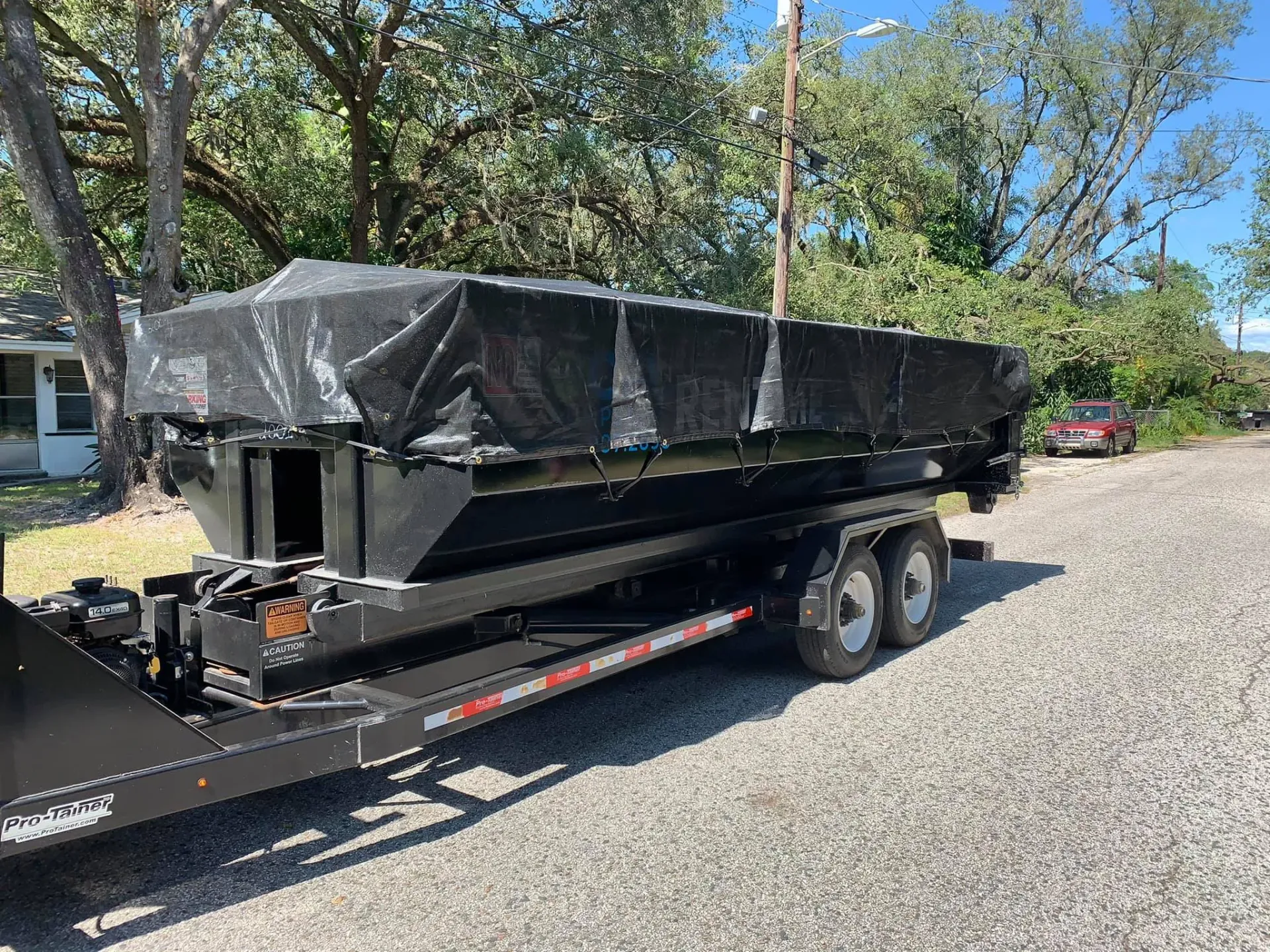Can I Fill a Dumpster With Drywall and Tile in Tampa, FL?
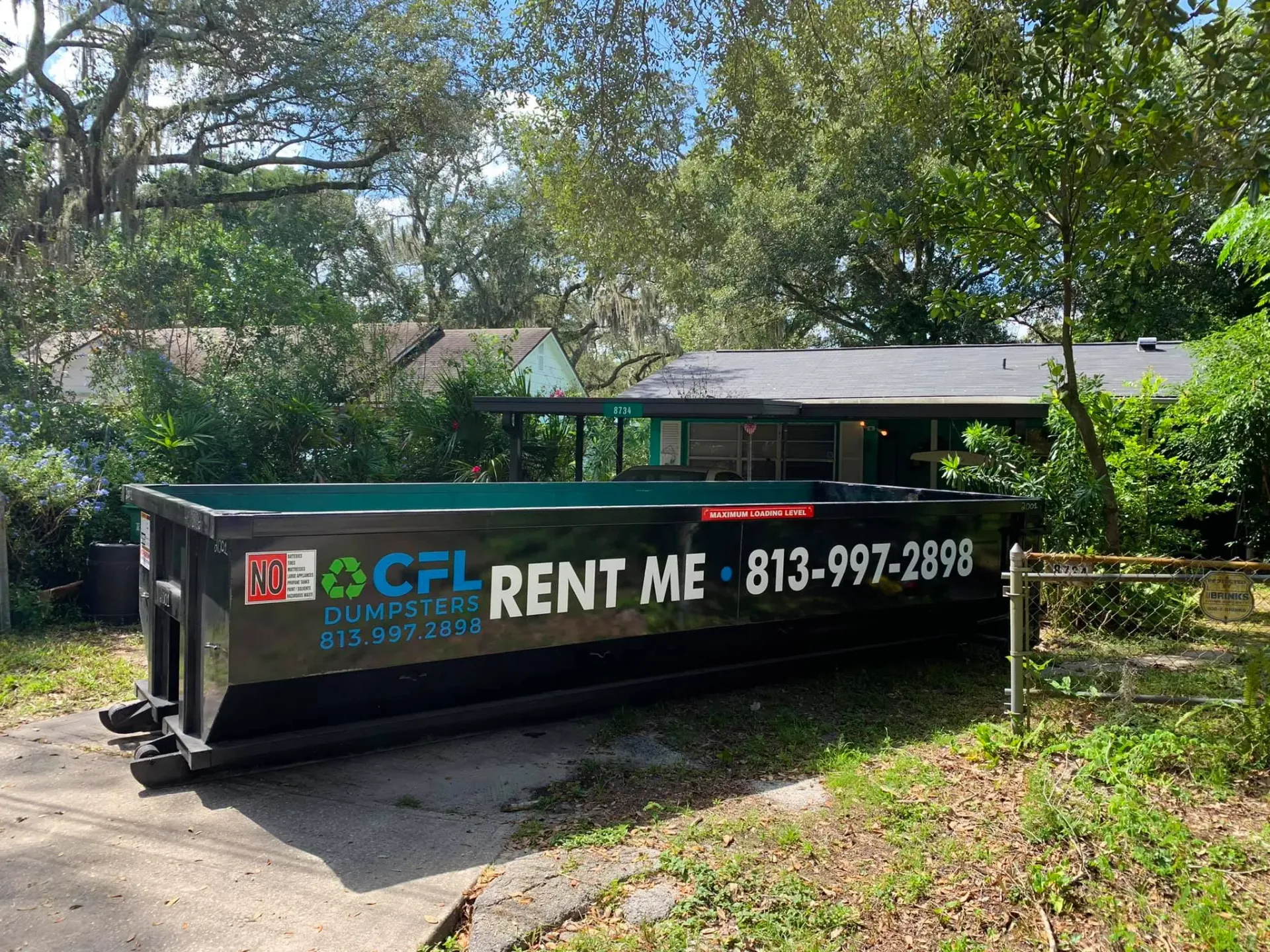
If you're tackling a home remodel, renovation, or major cleanout in Tampa, FL, it’s natural to wonder what materials can go into your dumpster—especially bulky ones like drywall and tile. The good news is that in most cases, both drywall and tile are allowed in roll-off dumpsters. These materials are common in construction and demolition projects, and local rental companies are prepared to handle them.
However, it's important to be mindful of the weight. Tile is especially heavy, and mixing it with other dense debris like concrete or roofing shingles can quickly push your dumpster over the weight limit, which could lead to overage fees. Be sure to ask your rental company about any restrictions or weight limits for construction materials. In some cases, they may recommend a specific dumpster size or suggest loading heavier items first to balance the weight safely.
Why It’s Important to Know What You Can Throw Away
Not all debris is treated the same way, especially when it comes to dumpster rentals. While materials like drywall and tile are generally accepted in most dumpsters, they come with some extra considerations—mainly their weight. These materials can add up fast, and if you overload the container, you might face costly overage fees or even delays if the hauler can’t safely pick it up.
Knowing what’s allowed—and how much of it you can toss—helps you avoid surprises and keeps your project running smoothly. Choosing the right dumpster size from the start ensures you can:
- Avoid weight-related fees that blow your budget
- Load items safely and avoid injuries on-site
- Comply with Tampa’s local disposal rules and avoid fines
Taking the time to plan your load properly helps you stay on track and stress-free from delivery to final haul-away.
What to Check Before You Toss Drywall or Tile
Dumpster Size and Space
Drywall and tile can take up more room and add more weight than you might expect. A small dumpster might seem convenient, but it can fill up quickly or exceed the weight limit before you're finished. For remodels or demolition jobs, a 20-yard or 30-yard bin is often the better choice. These sizes offer enough space to handle large volumes of heavy debris without overloading or needing a second rental.
Local Weight Limits
Every roll-off dumpster in Tampa comes with a weight limit built into the rental agreement. These limits vary by size and provider, and if you go over the allowed weight, you could be charged extra per ton. Tile and drywall are dense materials, so it's easy to hit the cap without realizing it. Always ask your rental company how much weight is included in your price and how overages are charged, so you can budget accordingly.
Mixing Debris Types
Some Tampa dumpster rental companies prefer—or even require—you to keep certain materials separate. Heavy debris like tile, concrete, or bricks may need to be kept apart from lighter items like wood or general junk. This helps with recycling, proper disposal, and reduces the risk of damage during transport. If you're working with mixed materials, let the company know in advance so they can guide you on the best approach.
Rental Period
Home improvement or demolition projects often take longer than expected, especially if you're doing the work yourself. Most dumpster rentals in Tampa come with a standard rental window of 3 to 7 days, but many companies allow extensions for a fee. Be sure to confirm how long you can keep the bin and what the daily rate is if you need extra time. This can help you avoid rushed cleanup and additional pickup charges.
Dumpster Sizes for Drywall and Tile Projects
Here’s a quick guide to help pick the right bin size in Tampa:
| SIZE: | Job Type: | Loads: | Good For: |
|---|---|---|---|
| 15 YARD | Small jobs | 6 pickup loads | Small rooms or short tile runs |
| 20 YARD | Mid-sized remodels | 8 pickup loads | Kitchen makeover or flooring projects |
| 30 YARD | Full house renovations | 14 pickup loads | Multi-room remodels or full drywall replacements |
| 40 YARD | Large constructions or tear-outs | 16-20 pickup loads | Major projects with lots of tile,wood, and wallboard |
Tips for Tampa Homeowners and Contractors
Watch Your Load
When loading drywall, stack it flat to save space and keep the bin balanced. For tile, it’s best to break larger pieces into smaller chunks. This not only helps distribute the weight more evenly but also makes the most of the available space in your dumpster. Careful loading can prevent shifting and make hauling safer.
Don’t Overfill
Always keep debris below the top fill line marked on the dumpster. Overfilling can make it unsafe to transport and may result in your hauler refusing the pickup. It can also lead to extra charges or the need to remove some materials before they’ll haul it away. If you’re unsure how full is too full, ask your provider before loading more.
Use Boards
Place plywood or sturdy boards underneath the dumpster’s wheels or edges, especially if it’s going on a concrete driveway, pavers, or asphalt. This simple step helps distribute the weight and protects your surface from cracks, scrapes, or rust stains—especially important when dealing with heavy materials like tile.
Ask First
If you’re unsure whether something can go in the dumpster—like old adhesives, paint-covered drywall, or tiles with mesh backing—don’t guess. Call your rental company and ask. They can give you a quick answer and help you avoid fines or delays at pickup. It’s better to double-check than to pay extra later.
FAQs About Tossing Drywall and Tile in Tampa
Can I put broken tile in a Tampa dumpster?
Yes, broken or loose tile is allowed in most Tampa roll-off dumpsters. It’s a common material from flooring projects, kitchen remodels, or bathroom renovations. Just be careful not to mix it with hazardous waste like paint, solvents, or electronics. Keeping your debris clean and sorted helps ensure smooth pickup and proper disposal.
Is drywall allowed in Tampa roll-off dumpsters?
Yes, you can dispose of drywall in a dumpster rental. It’s accepted by most local providers. However, drywall can get heavy quickly, especially in large sheets. Stack it flat in the dumpster to save space and avoid overloading. If you’re tossing out a lot of it, let your rental company know so they can help you pick the right size bin.
How much weight is included in a Tampa dumpster rental?
Weight limits vary based on the size of the dumpster you rent. Most Tampa dumpster rentals include anywhere from 1 to 4 tons in the base price. If you go over the included weight, you’ll likely be charged by the ton. Always ask your rental provider for exact limits so you can avoid unexpected fees.
Do I need a permit to place a dumpster in Tampa?
If you’re placing the dumpster on a public street or sidewalk, you may need a permit from the City of Tampa. If it’s going in your private driveway, a permit usually isn’t required. To be safe, check with the city or ask your rental provider if they can help you get the necessary paperwork.
How long can I keep the dumpster for a tile job?
If your HOA initially denies your request, don’t panic. You still have options. Reach out to the board or management company and ask if there’s a way to make the situation work. In many cases, smaller dumpsters, shorter rental durations, or specific placement (like keeping the bin behind a gate or away from the street) can be approved with a simple request. Open communication and showing you’re willing to follow their guidelines often go a long way toward finding a solution.
Before You Rent: Quick Reminders
Measure your work area, figure out how much tile and drywall you have, and ask about weight limits. Let your rental company know what you’re tossing to avoid surprises.
Book Your Dumpster Online in Tampa, FL Today
If you’re handling tile or drywall removal, get a dumpster that fits your job. With 15-yard to 40-yard dumpsters in Tampa, there’s a size for every project. Book online or call to get started and stay on schedule.
